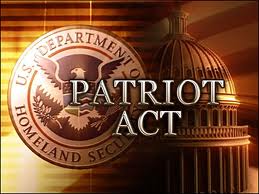Prominent national security whistleblowers are calling for the full repeal of the USA Patriot Act, charging that under that legislation the federal government has decimated the U.S. Constitution and warning that unless action is taken, there is no end in sight to government secrecy and manipulation.
The group, which included former National Security Agency (NSA) official William Binney and Pentagon Papers whistleblower Daniel Ellsberg, appeared Monday at the National Press Club in Washington D.C. to voice their backing for H.R. 1466, the Surveillance State Repeal Act, which was recently introduced by Reps. Mark Pocan (D-Wis.) and Thomas Massie (R-Ky.).
The bill would repeal the Patriot Act and the FISA Amendments Act of 2008 while installing a number of provisions to safeguard people’s privacy and force the government to account for surveillance activities. The legislation was introduced as Congress debates key segments of the Patriot Act, Secs. 206 and 215, which are due to expire on June 1.
During the press conference, former NSA senior executive and whistleblower Thomas Drake, who was among those present, said that following the attack on September 11, 2001, the federal government under former President George W. Bush and later under President Barack Obama “chose in great secrecy to unchain itself” from the U.S. Constitution.
Drake added that the individuals prosecuted by Obama’s unprecedented “war on whistleblowers,” who brought national attention to the encroaching national security state, are “the canaries in the Constitutional coal mine.”
Former NSA employee J. Krik Wiebe added that he is increasingly concerned that the country is not “going to be able to get out of this mess.”
“We’ve become a society willing to look the other way in the face of wrongdoing,” Wiebe said said.
Former CIA analyst Ray McGovern, former FBI special agent Coleen Rowley, and Jesselyn Radack, former Justice Department trial attorney and ethics adviser, and now director of National Security and Human Rights at the Government Accountability Project, also took part in Monday’s discussion.

